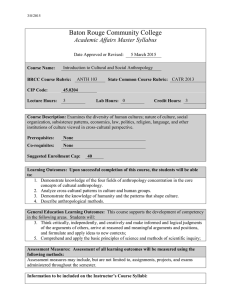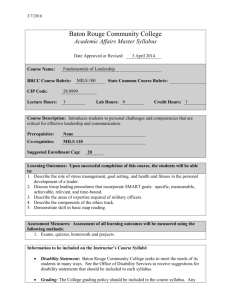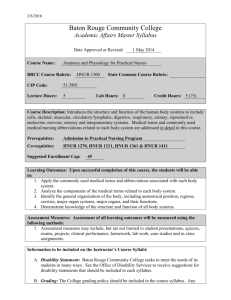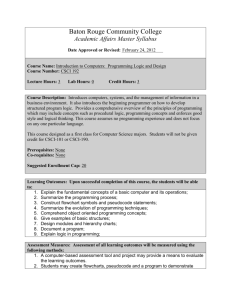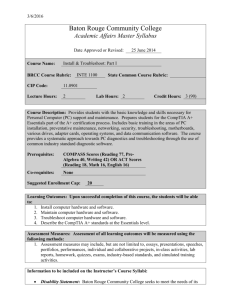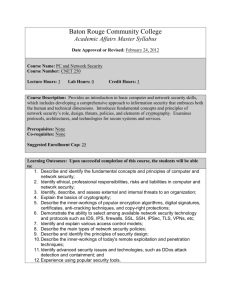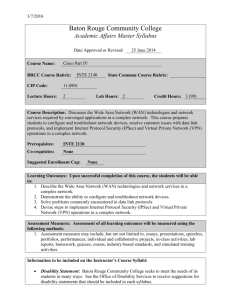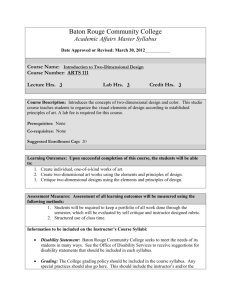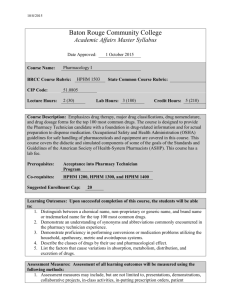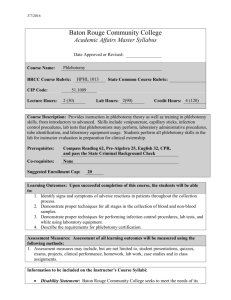ANTH_101_MS - Baton Rouge Community College
advertisement
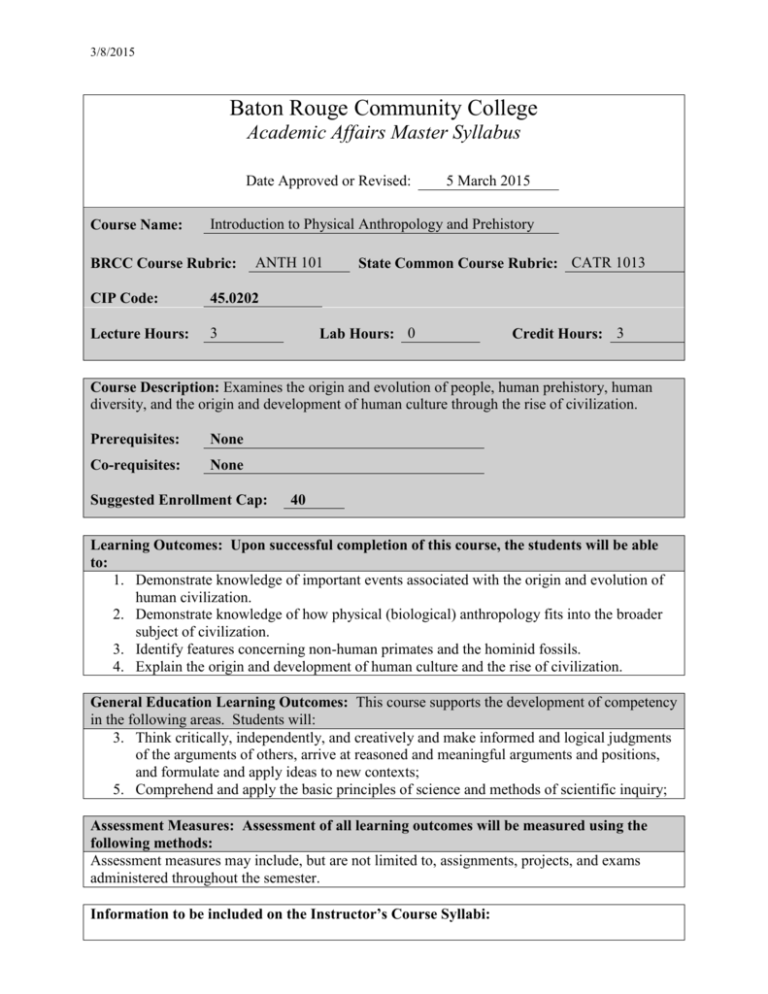
3/8/2015 Baton Rouge Community College Academic Affairs Master Syllabus Date Approved or Revised: Course Name: 5 March 2015 Introduction to Physical Anthropology and Prehistory BRCC Course Rubric: ANTH 101 CIP Code: 45.0202 Lecture Hours: 3 State Common Course Rubric: CATR 1013 Lab Hours: 0 Credit Hours: 3 Course Description: Examines the origin and evolution of people, human prehistory, human diversity, and the origin and development of human culture through the rise of civilization. Prerequisites: None Co-requisites: None Suggested Enrollment Cap: 40 Learning Outcomes: Upon successful completion of this course, the students will be able to: 1. Demonstrate knowledge of important events associated with the origin and evolution of human civilization. 2. Demonstrate knowledge of how physical (biological) anthropology fits into the broader subject of civilization. 3. Identify features concerning non-human primates and the hominid fossils. 4. Explain the origin and development of human culture and the rise of civilization. General Education Learning Outcomes: This course supports the development of competency in the following areas. Students will: 3. Think critically, independently, and creatively and make informed and logical judgments of the arguments of others, arrive at reasoned and meaningful arguments and positions, and formulate and apply ideas to new contexts; 5. Comprehend and apply the basic principles of science and methods of scientific inquiry; Assessment Measures: Assessment of all learning outcomes will be measured using the following methods: Assessment measures may include, but are not limited to, assignments, projects, and exams administered throughout the semester. Information to be included on the Instructor’s Course Syllabi: Disability Statement: Baton Rouge Community College seeks to meet the needs of its students in many ways. See the Office of Disability Services to receive suggestions for disability statements that should be included in each syllabus. Grading: The College grading policy should be included in the course syllabus. Any special practices should also go here. This should include the instructor’s and/or the department’s policy for make-up work. For example in a speech course, “Speeches not given on due date will receive no grade higher than a sixty” or “Make-up work will not be accepted after the last day of class.” Attendance Policy: Include the overall attendance policy of the college. Instructors may want to add additional information in individual syllabi to meet the needs of their courses. General Policies: Instructors’ policy on the use of things such as beepers and cell phones and/or hand held programmable calculators should be covered in this section. Cheating and Plagiarism: This must be included in all syllabi and should include the penalties for incidents in a given class. Students should have a clear idea of what constitutes cheating in a given course. Safety Concerns: In some programs this may be a major issue. For example, “No student will be allowed in the safety lab without safety glasses.” General statements such as, “Items that may be harmful to one’s self or others should not be brought to class.” Library/ Learning Resources: Since the development of the total person is part of our mission, assignments in the library and/or the Learning Resources Center should be included to assist students in enhancing skills and in using resources. Students should be encouraged to use the library for reading enjoyment as part of lifelong learning. Expanded Course Outline: I. II. III. IV. V. VI. VII. VIII. IX. X. XI. Introduction to Anthropology Evolutionary theory Modern human variation and adaptation Overview of primates Paleoanthropology Evolution of early primates and hominids Origin and dispersal of modern humans Expansion into the New World and Paleo-Indian cultures Early Holocene Hunters and Gatherers Food Production First Civilizations 2

